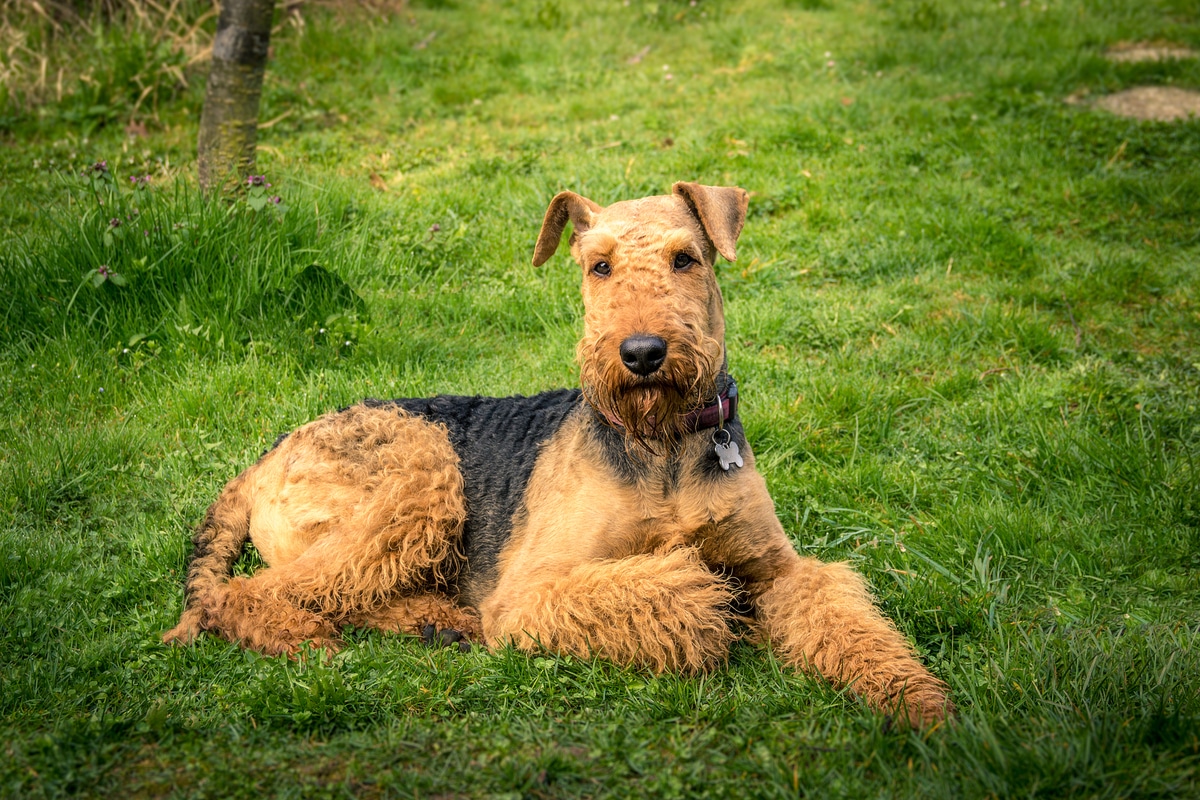
Apartment living means that you should pick a dog who doesn't need too much space. Apartments are not the right place for a Basenji or herding dogs. These dogs require regular physical activity and mental stimulation. You should keep them in a secure area. Chihuahuas or Bichon Frises would also be suitable.
Basenji
Basenji is a wonderful apartment dog as it is not a barker. Apartment dwellers will be happy to hear that the Basenji doesn't bark. This is especially important if your apartment is in an apartment building. Although the Basenji's bark volume is low, it can make other sounds. The Basenji is great for apartments. However, some apartment owners might not allow pets inside their buildings. Consider switching to a different breed if this is something that concerns you.
The space is a major problem when living in an apartment. Apartments are generally smaller than houses and are therefore easier to clean and require less maintenance. Basenjis must be leashed and exercise on a daily basis, so schedule walks. In addition, make sure you keep your Basenji clean and tidy. Because small spaces can make it difficult to avoid unpleasant smells, you will need to keep your apartment clean.
Cavalier King Charles Spaniel
The Cavalier breed is modeled after its royal ancestors, and was revived after World War II. Roswell Eldridge, an American fancier who traveled to England in 1920 to purchase two spaniels, discovered that there were many types. He offered a 25-pound prize for the "oldest type" male and female. Breeders began to improve their stock after the incentive.

While it may seem surprising, the Cavalier King Charles Spaniel is an ideal choice for apartment living. This breed is known for their good behavior and low energy, making them a great choice for apartment living. The Cavalier Kings Charles Spaniel is small but it doesn't need a lot of exercise. They are happy to play with you and other apartment dogs. The Cavalier King Charles Spaniel, a cute and small dog, will be a great fit for a studio apartment.
Bichon Frise
You may wonder what breeds of dog are best suited to apartment living. Bichon Frises are a great choice due to their size and weight. They are usually less than a foot tall, and they are easy to train. They enjoy socializing with other people and are highly social. They make excellent companions and are hypoallergenic, which makes them perfect for apartments.
Bichon Frises are happy and small dogs that have a friendly temperament. This makes it a great choice for apartments and smaller spaces. It's easy for owners to train and does not need much space. It is also very easy to train and sheds little making it a perfect apartment dog. You should remember, however, that they can be very energetic and require lots time to bond with their owners.
Chihuahua
A Chihuahua is an excellent pet choice, as well as being a small and friendly breed. Chihuahuas love to run and require regular exercise. Despite their small size, they can be vocal and alert if they notice a stranger. Chinese cresteds can also be great pets for apartments. This small breed is very energetic and can be a great athlete.
Most apartment dwellers do not have the time to exercise high-energy breeds of dogs. The best dogs for apartments are the ones that are suited to apartment living. Most apartment dogs will be content with a 20 to 30-minute walk to the park or the beach each day and will spend the rest of their time indoors. This is due to the fact that smaller breeds are less likely to hold their bladders and can make it difficult to take your dog out often.
Papillon

The Papillon breed is a small, soft coated dog. It is loved for its easygoing personality as well as its ability to please its owners. It is very energetic and playful but makes an excellent watchdog. The dog can be a great companion in an apartment, but they will need to be exercised often. This breed needs to be brushed daily.
Another advantage of the Papillon is that it is easy to train it to use an indoor potty, which is ideal for apartment life. This feature will help keep your apartment floors clean, and also prevent your pet from making a mess on your floors. While not all small dogs are able to learn to use the potty, the Papillon is a good choice.
Doberman
Doberman pinschers can be trained and are highly intelligent. They can quickly adapt to a new environment and learn how to behave. They shed less and are very clean. People often only consider their size when considering adopting a dog. However, the Doberman is a great apartment dog because of its many other qualities.
Dobermans, despite being small, are extremely active dogs. They can travel up to 40 mph and don't get tired easily. They don't chew on furniture so they make a great choice for apartments.
FAQ
What are the responsibilities for pet owners?
An owner of a pet must love their pet unconditionally. They should also provide for their basic needs such as food, water, shelter, etc.
They should also teach the pet how to behave. It is important to take care of your pet and not neglect it.
He should also be responsible enough and able to take care of it.
There are three things you should consider before buying a cat.
These are some questions you should ask yourself before buying a cat.
-
Are there any health issues in the cat?
-
Can the cat eat all of my food?
-
Do I want a cat to love cats or just a pet?
What amount should I spend on my pet?
A good rule of thumb is to budget around $200-$300 per month.
However, this varies depending on where you live. In New York City for instance, the average monthly spending would be $350.
But, in rural areas, you may only need to spend about $100 per month.
It's important to remember that you should buy quality items such as a collar, leash, toys, etc.
Also, consider purchasing a pet crate. This will ensure your pet is safe while being transported.
How do I find out if my dog has fleas
Your pet may be suffering from fleas if he/she is constantly scratching his fur, licking himself excessively, or looks dull and untidy.
Flea infestations could also be suspected if you notice redness on your pet’s skin.
Your pet should be seen by a vet immediately for treatment.
How long should a dog stay indoors?
Dogs are naturally curious. Dogs need an outlet to express their curiosity. If they don't have any outlets, they may become destructive. This can lead to many problems including property destruction and injury to others.
Dogs should always be kept on a leash when outside. The leash keeps them from getting into trouble while allowing them to explore their environment safely.
Dogs will get bored and restless if they are kept inside for too long. He may start to chew furniture and other objects. He could also develop health problems if his nails grow too long.
These negative consequences can be avoided by allowing your dog to run free at all times. Take him for a walk around the neighborhood, go for a ride in the car, or take him to the park.
This will give him something to do and help him burn some energy.
How to Make Your Pet Smile
Pet owners often wonder how to make their pets happy. Many pet owners buy treats, toys, and even clothes. It might not work as pets may not like certain things. Some dogs, for example, can't bear sweaters.
It is important to find out why your pet doesn’t like something before you purchase it. You may find out that your pet enjoys different foods than you. He might even hate shoes.
Another tip is to play games with your pet. A ball or a frisbee are good options. You can throw it around the room. You can also throw it into the air and let him chase it. This game makes both of you laugh. It's also relaxing and fun.
A bath is also a good idea for your pet. A bath helps to remove dead skin cells and dirt from your pet's coat. It also keeps his hair and skin smelling good.
It is vital to keep your pet happy and healthy. Do not allow your pet to eat junk food. You should instead feed him quality food. He should get plenty exercise. So, take him outside for a walk or play fetch.
Spending time with your pet is a great way to bond. Most pets would rather spend time with their owners than be alone.
Last but not least, be sure to unconditionally love your pet. Never yell at him or hit him. Be patient with the boy. Never leave him alone.
What are some signs that my pet might be sick?
Several symptoms indicate your dog is sick. Symptoms include:
-
Vomiting
-
Diarrhea
-
Lethargy
-
Fever
-
Weight loss
-
Reduced appetite
-
Coughing
-
Difficulty Breathing
-
Bleeding from behind the nose
-
In stool or urine, blood can be found
These are just a few examples. Your vet can tell you which signs to watch for.
Statistics
- Reimbursement rates vary by insurer, but common rates range from 60% to 100% of your veterinary bill. (usnews.com)
- Here's a sobering reality: when you add up vaccinations, health exams, heartworm medications, litter, collars and leashes, food, and grooming, you can expect a bill of at least $1,000 a year, according to SSPCA. (bustle.com)
- It's among a relatively few companies that provide policies with a full (100%) coverage option, meaning you are not responsible for any co-payment of bills. (money.com)
- * Monthly costs are for a 1-year-old female mixed-breed dog and a male domestic shorthair cat less than a year old, respectively, in excellent health residing in Texas, with a $500 annual deductible, $5,000 annual benefit limit, and 90% reimbursement rate. (usnews.com)
- For example, if your policy has a 90% reimbursement rate and you've already met your deductible, your insurer would pay you 90% of the amount you paid the vet, as long as you're still below the coverage limits of your policy. (usnews.com)
External Links
How To
How to choose the perfect name for your pet
When you are considering adopting a pet into your family, it is one the most crucial decisions you will make. You want your pet's name to reflect their personality.
Also, think about how others might refer you to them. For example, if you plan to use their name when speaking with someone. Finally, think about how you'd like to be referred. Are you more comfortable calling yourself "dog" or your "pet"?
Here are some tips for getting started.
-
Name your dog a name that reflects its breed. Look up the names of the breeds if you know the breed (e.g. Labradoodle). Ask someone with a good knowledge of dogs to suggest a name.
-
Think about the meaning of the name. Some breeds are named for people or places, others are nicknames. The name "Rover," for example, was given to a Labrador Retriever because he was always running around!
-
How would you like to be called? Do you prefer to be called "dog?" or "pet?" Would you prefer to refer to your dog as "Puppy," or "Buddy",?
-
Don't forget to include the owner's first name. It's sensible to give your dog an owner's name. But, don't limit yourself by limiting your family's names. Your dog could grow up to become a member of your family.
-
Keep in mind, many pets have multiple nicknames. A cat, for example, might have multiple names depending on where she lives. At home, she could be called "Kitty Cat", but when visiting friends, "Molly". This is especially true if the cat lives outside. They will often adapt their names to match their environment.
-
Be creative! There are no set rules. It is important to pick something distinctive and memorable.
-
Check to make sure your chosen name hasn't been used by someone else or a group. That way, you won't accidentally steal someone else's identity!
-
Finally, remember that choosing a name for your pet isn't an exact science. Sometimes, it can take time to find the right name for your dog. Keep looking until you find that perfect name.